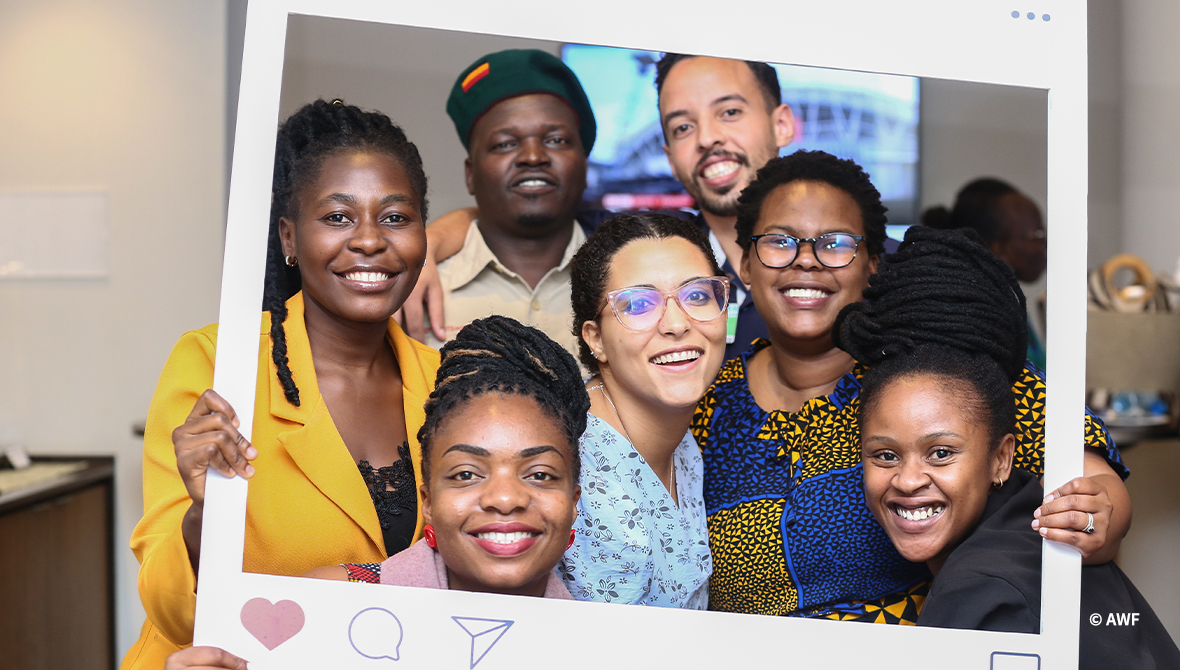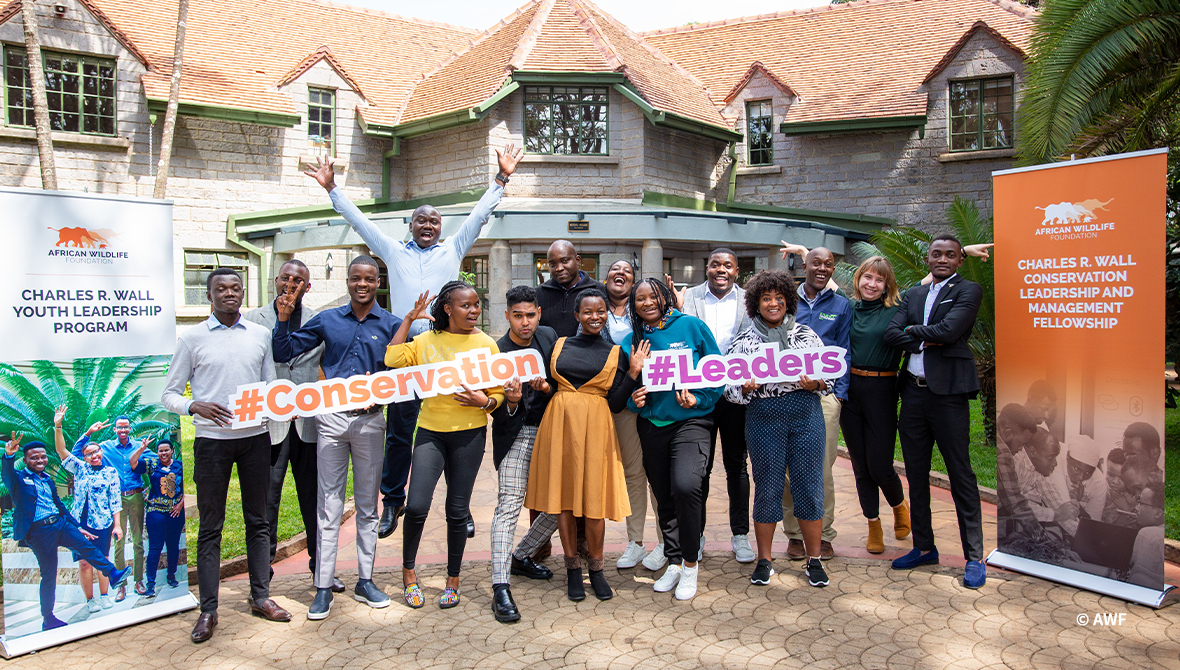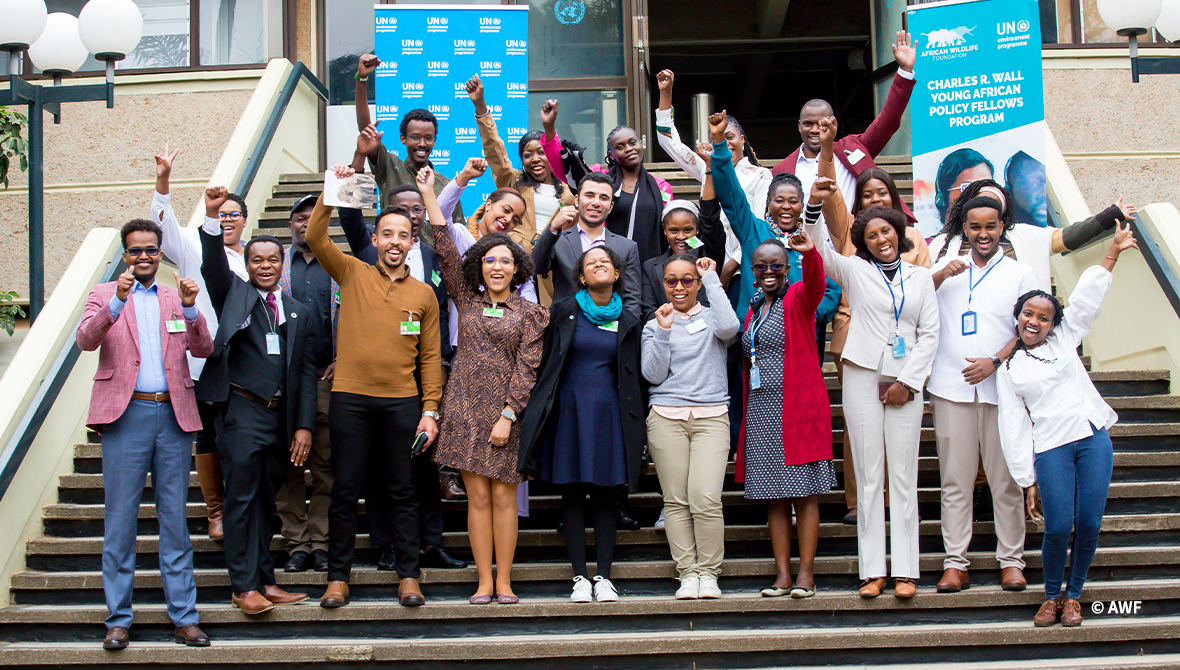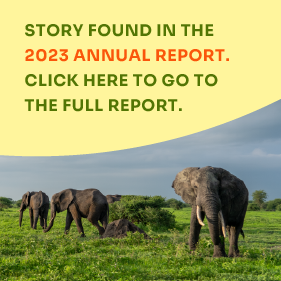Youth as Catalysts for Change

The Charles R. Wall Young African Policy Fellowship trains young professionals in biodiversity policymaking.
Youth, defined by the African Union as people between the ages of 15 and 35, comprise 70% of the African population. They are driving massive societal changes, influencing both their peers and politicians as the largest voter demographic on the continent. AWF believes that investing in youth is pivotal for building robust conservation leadership in Africa. But youth in Africa often lack access to opportunities that motivate them to consider conservation as a career or think about it as a guiding value. AWF worked to change that in FY23 by building communities of young leaders and changemakers and providing professional training and opportunities, including two different professional fellowships targeting policymakers and managers.
In FY23, two ambitious AWF initiatives, the Charles R. Wall Young African Policy Fellows and the Charles R. Wall Conservation Leadership and Management Fellows, ran concurrently for the first time. Both are professional training programs focused on developing young conservation leaders, one with an emphasis on policymakers and the other with an emphasis on managers. A core element of the programs is fostering collaboration among participants with diverse experiences and backgrounds. The fellowships aim to build appreciation for this diversity and create a network of professionals grounded in the reality of conservation complexities across the continent. Running the programs concurrently provided a valuable opportunity to observe how these two groups of fellows complement each other and work towards common conservation goals.

The Conservation Leadership and Management Fellowship provides hands-on, experiential learning to leaders of diverse backgrounds.
“We approach programs like the Charles R. Wall fellowships from a place of co-creation with participants,” said Simangele Msweli, Senior Manager, Youth Leadership at AWF. “When people come and engage, it's not just about listening to what we have to say, it's an opportunity for them to be heard as well.”
The Wall Fellows made significant contributions to conservation efforts in FY23, both in partnership with AWF and as individuals inside their own institutions.
One standout story from the program in FY23 is that of a Kenyan Policy Fellow who works for the county government of Taita Taveta as the politically appointed lead on natural resource use and the environment. Although he has a passion for conservation, his professional background is in business. Through AWF’s fellowship, he gained the perspective necessary to successfully take up a leadership role in the conservation policy space, establishing the first county-led coordination platform for environmental players in his county, which is the largest county in the Tsavo landscape, an important area for wildlife in southern Kenya.

The Young African Policy Fellowship is a partnership between AWF and the UN Environment Programme.
Another example comes from the Leadership and Management program, which requires fellows to develop an “innovation project” addressing real-world challenges within their organizations. A Rwandan Fellow focused on the sustainability of conservation projects in Busaga Natural Forest, which hosts the only nesting and breeding site for hooded vultures in Rwanda. Historically, her organization financed conservation projects in this forest by securing grants. She proposed designing a forest management plan with a business model that enables the forest to generate its own resources as opposed to relying solely on grants. Her organization supported her proposal, and the management plan is currently under review by the Ministry of Environment.
